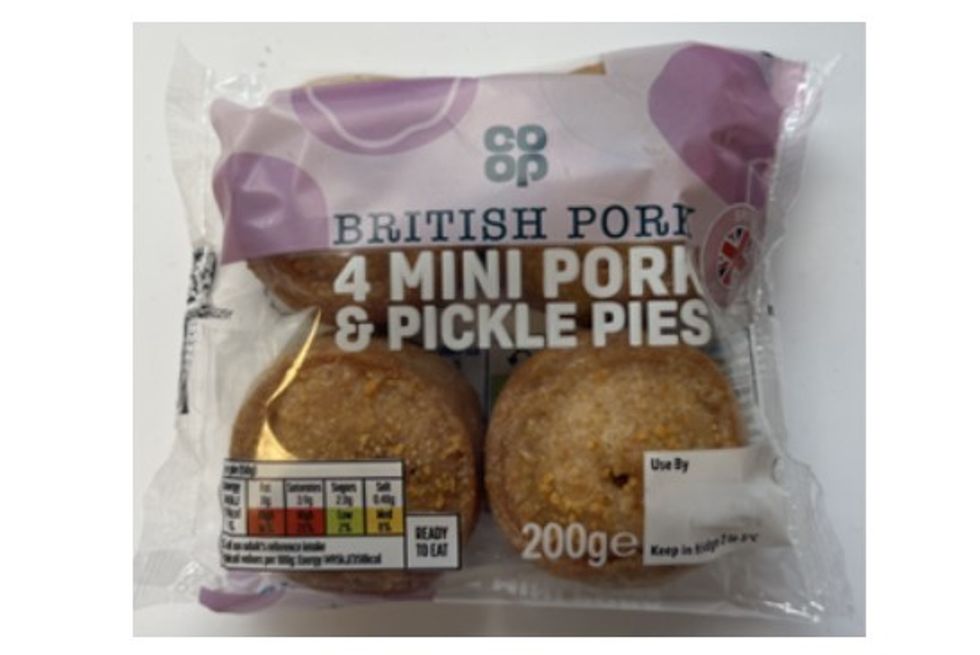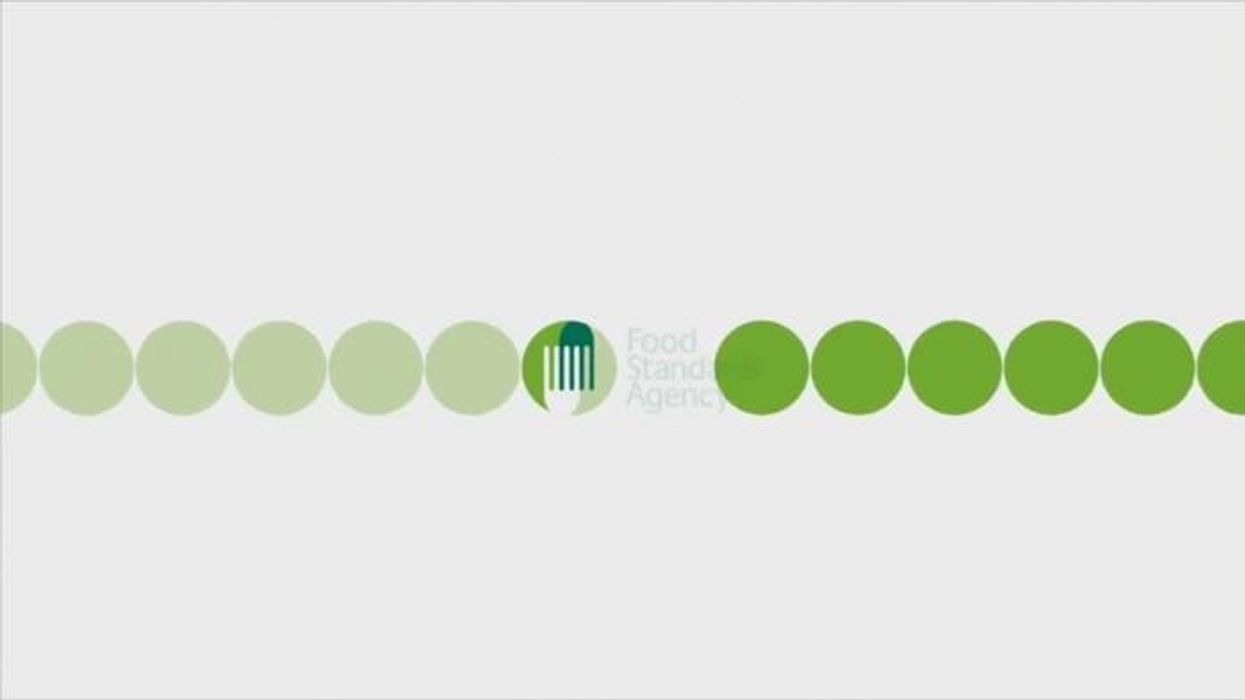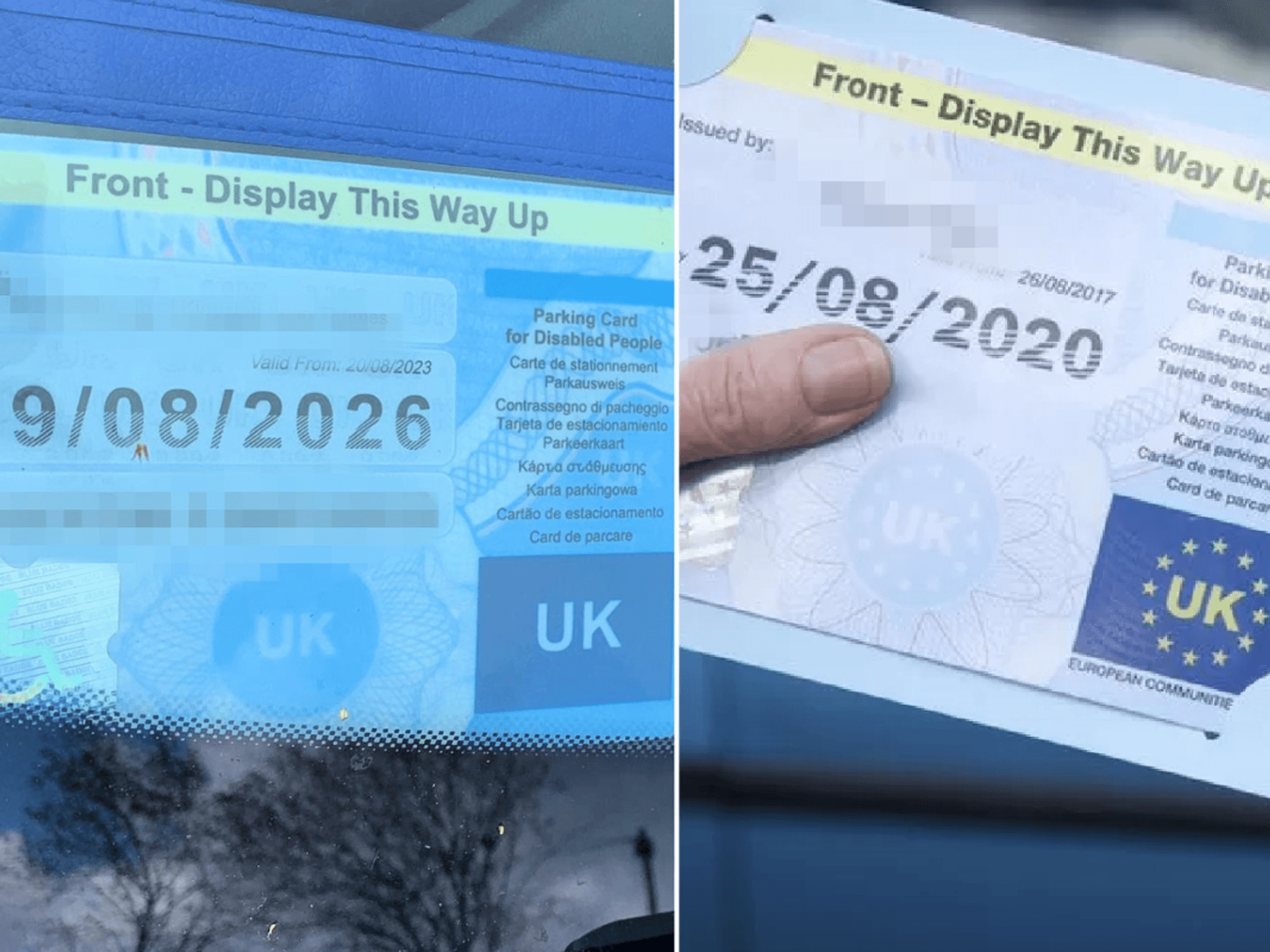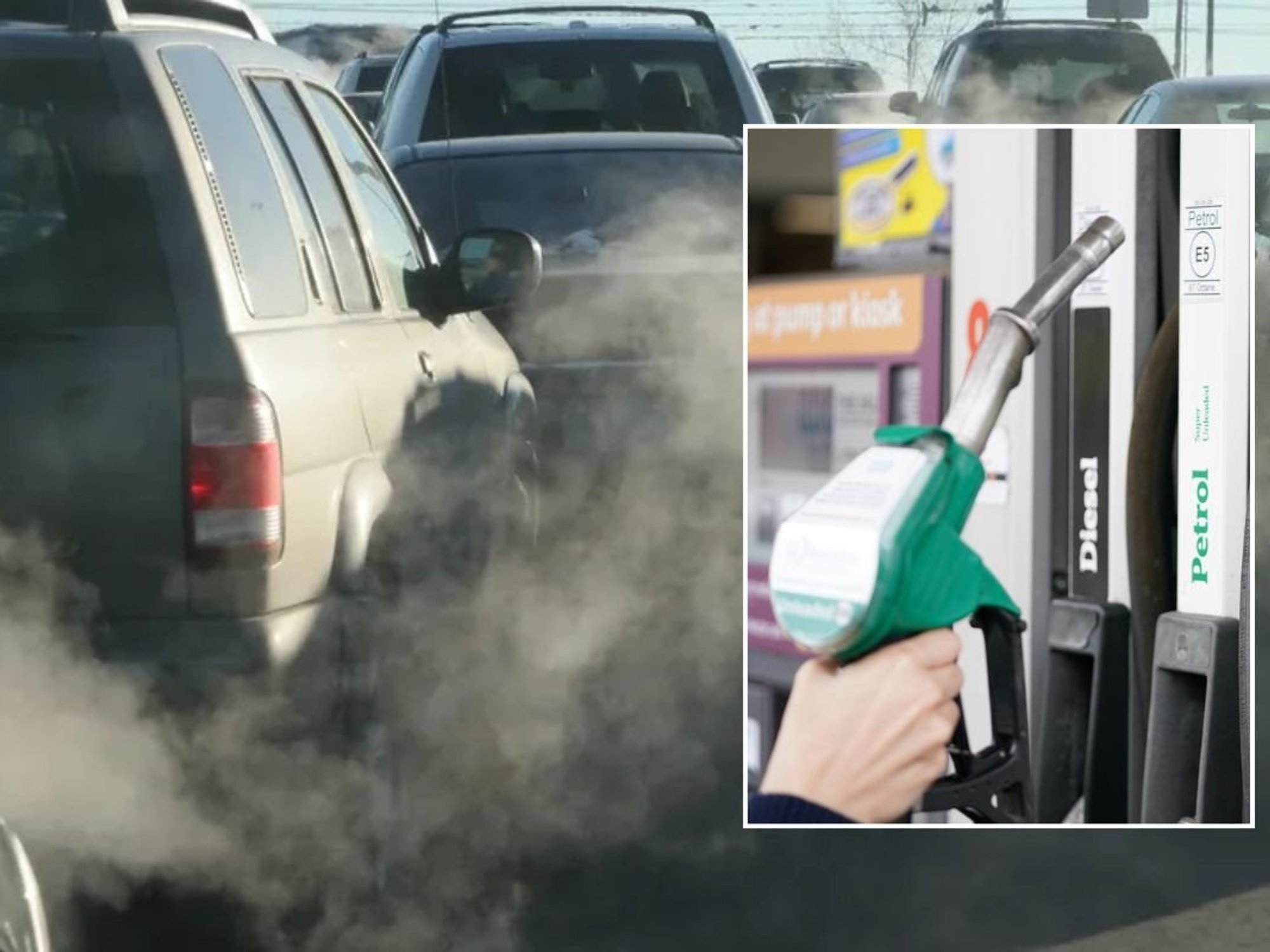Co-op shoppers warned as retailer issues urgent food recall – 'Do not eat!'

Customers can return affected products to stores for a full refund or replacement
Don't Miss
Most Read
Co-op has withdrawn its 4 Mini Pork & Pickle Pies from sale after discovering the products contain milk that isn't declared on the packaging.
The retailer is recalling 200g packs with use-by dates of August 13, August 14, and August 16, all 2025.
The Food Standards Agency (FSA) confirmed that the recall poses a potential health hazard for customers with milk allergies or intolerances.
**ARE YOU READING THIS ON OUR APP? DOWNLOAD NOW FOR THE BEST GB NEWS EXPERIENCE**
Officials told shoppers: "If you have bought the above product and have an allergy or intolerance to milk or milk constituents, do not eat it."
Affected shoppers can obtain full refunds or replacements by returning the products to any Co-op store where they were purchased.
Online customers can arrange refunds by ringing 0330 041 7737. Additional assistance is available through Co-op's Careline on 0800 0686 727 or by email via the retailer's product issues webpage.
Co-op has notified relevant allergy support groups about the recall to ensure members receive timely warnings.
Point-of-sale notifications have been placed in stores to alert shoppers, with displays remaining until August 17.
LATEST DEVELOPMENTS:

Co-op's 4 Mini Pork & Pickle Pies contain undeclared milk
|FSA
Symptoms of a milk allergy
It's possible to have an immediate allergy (IgE-mediated), a delayed allergy (non-IgE mediated), or an intolerance reaction.
An IgE-mediated allergy, the most common among adults, is quick to appear, with symptoms arising within minutes or up to two hours afterwards.
Allergy UK warned: "Most allergic reactions are mild, but they can also be moderate or severe. Anaphylaxis is the most severe form of allergic reaction, which can be life-threatening."

Shoppers should return the product to Co-op for a full refund
| GETTY IMAGESMild to moderate symptoms include an itchy mouth, tongue and throat; swelling of lips, around the eyes or face; a red, raised, itchy rash (often called nettle rash, hives or urticaria); vomiting, nausea, abdominal pain and diarrhoea; runny nose and sneezing.
Severe symptoms of anaphylaxis include swelling of the tongue and/or throat; difficulty in swallowing or speaking or change in voice (hoarse voice); wheeze (whistling noise) or persistent cough; difficult or noisy breathing; dizziness, collapse, loss of consciousness (due to a drop in blood pressure).
Officials noted that anaphylaxis should always be treated as a medical emergency. If available, adrenaline should be given urgently and an ambulance called.
Experts added: "Cow's milk allergy is one of the most common food allergies to affect babies and young children.
"Most children will have outgrown their allergy to milk by the time they reach school age (around five years of age).
"In a small number of people who do not outgrow their allergy to cow's milk, it will persist into adulthood. Where this happens, people are more likely to experience more severe allergic reactions.
"The sudden development of an allergy to cow’s milk as an adult can happen, but is very rare, and as a result, there has been little research carried out about it and why it might occur."
For further information on milk allergies and intolerances in both children and adults, visit Allergy UK.
About allergy alerts
The FSA explained why allergy alerts are issued. While they aren't too common, they must always be taken seriously to ensure customer safety.
Officials stated: "Sometimes there will be a problem with a food product that means it should not be sold.
"Then it might be 'withdrawn' (taken off the shelves) or 'recalled' (when customers are asked to return the product).
"Sometimes foods have to be withdrawn or recalled if there is a risk to consumers because the allergy labelling is missing or incorrect, or if there is any other food allergy risk. When there is a food allergy risk, the FSA will issue an Allergy Alert."











